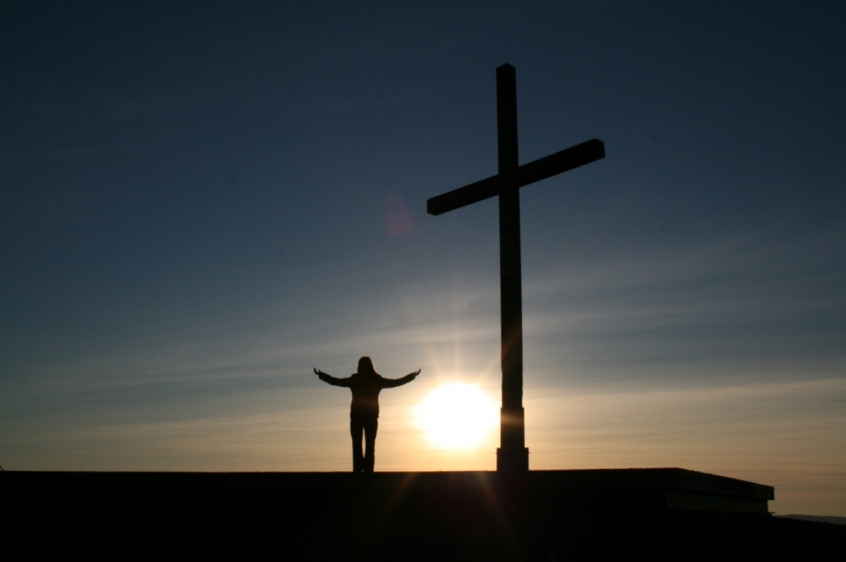It reads as a bitter, desperate cry.
As Jesus hangs on the cross, naked, dying, and at the climax of his earthly ministry he cries: 'My God, my God, why have you forsaken me.'
The phrase appears in both Matthew's and Mark's account of Jesus' death and both include a transliteration of what Jesus said: 'Eloi, Eloi, lema sabachthani?' before adding, 'which means "My God, my God, why have you forsaken me?"'.
Jesus, the son of God, who has led a life in perfect union with God the Father, is abandoned by him at his most desperate moment.
And as he dies he gives this heart-rending cry: 'My God, my God, why have you forsaken me.'
So why did God abandon him at this moment?

At this moment, all the world's sin and guilt is laid on Jesus. All the things we have done which we shouldn't and thing we should have done but didn't create a separation between us and a holy God. He who is perfect cannot keep his perfection if he mingles with us who are so far from perfect.
And the full weight of that mess is placed on Jesus, as God's son at this moment on the cross. God the father has no choice but to look away.
God abandons his own so he did not have to abandon us.
It is because he turned his back on Jesus at this point that means he never turns his back on us.
This cry of desperation is also actually a quote from an ancient Psalm, written hundreds of years before Jesus came to earth.
Psalm 22 opens with exactly the same words: 'My God, my God, why have you forsaken me?'
It goes on to describe several horrors that are echoed in Matthew's account of the crucifixion.
For example Psalm 22:7-8 which reads: 'All who see me mock me; they hurl insults, shaking their heads. "He trusts in the Lord," they say," let the Lord rescue him. Let him deliver him, since he delights in him."'
Similarly Matthew 27:39 reads: 'Those who passed by hurled insults at him, shaking their heads.'
Later verse 41 reads: 'In the same way the chief priests, the teachers of the law and the elders mocked him."He saved others," they said, "but he can't save himself! He's the king of Israel! Let him come down now from the cross, and we will believe in him.He trusts in God. Let God rescue him now if he wants him, for he said, 'I am the Son of God.'"'
This has led to some theologians saying it was prophetic of Jesus' death.













